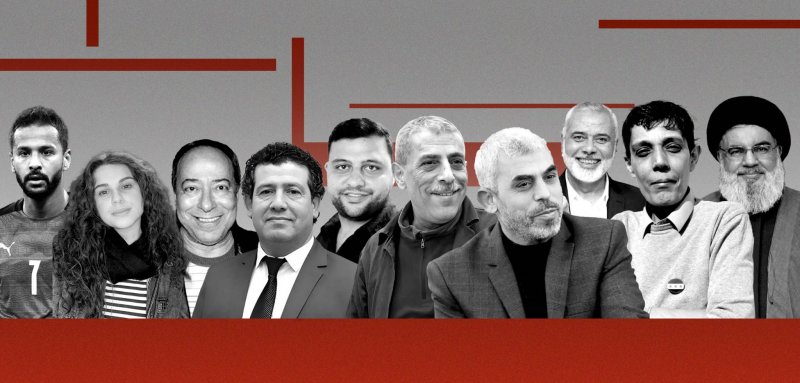In a year rife with countless tragedies and the peak of Israeli brutality, the list of notable and influential figures the Arab world lost in 2024 spans various fields—from political and military leaders to victims of torture among prisoners and detainees, doctors, resilient journalists, and creative minds.
Here are 10 of the most prominent Arab figures who left us this year, their passing both shocking and resounding.
1) Our Raseef22 correspondent in Gaza – Mohammed Atallah
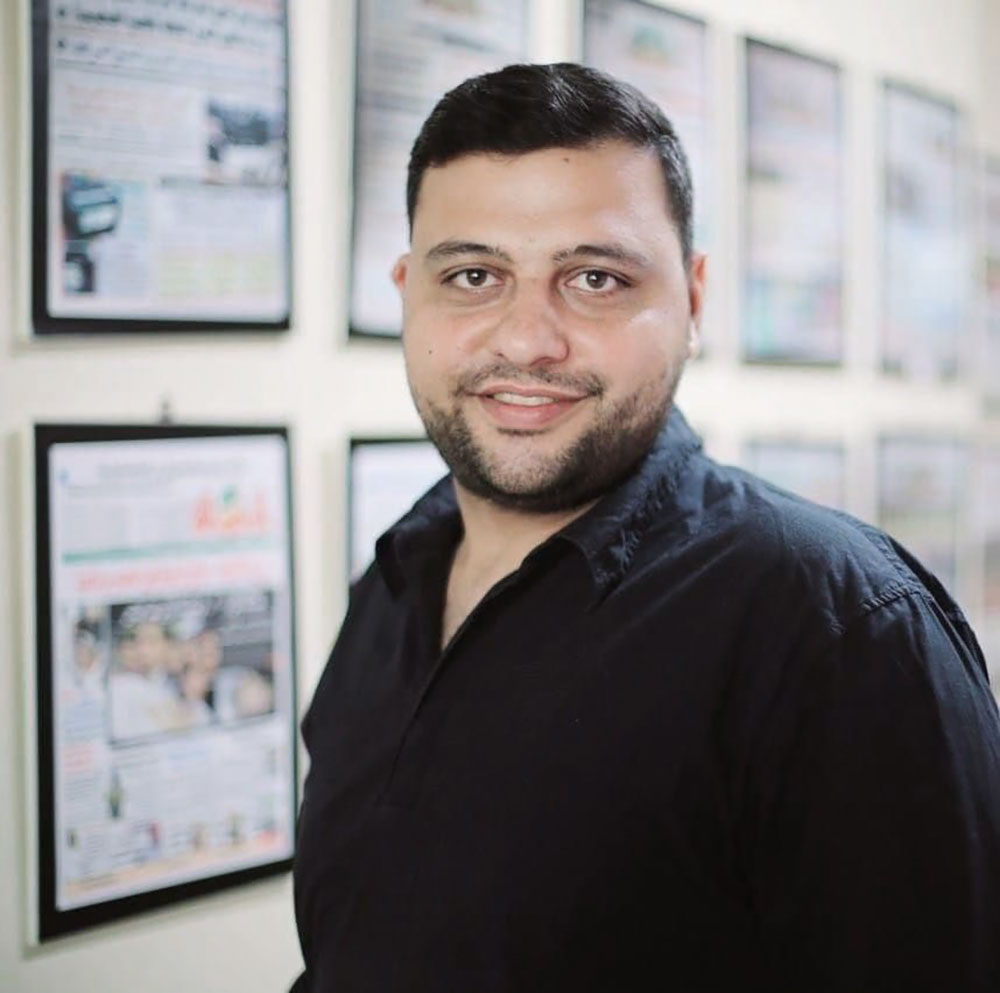 Our Raseef22 correspondent in Gaza – Mohammed Atallah
Our Raseef22 correspondent in Gaza – Mohammed Atallah
On January 29, Israel killed Palestinian journalist and our Raseef22 correspondent in Gaza, Mohammed Atallah, in an airstrike on Al-Shati Refugee Camp. Israel ended the life of our colleague Mohammed along with his two children, leaving behind his pregnant wife, who gave birth two months after his martyrdom.
At the time, Raseef22’s Editor-in-Chief Ayman Sharrouf wrote:
"Mohammad was an active and professional journalist, but he was also a kind and respectable human being. In his last recording, he hinted that he had found a safe place for him and his family. He wished for calm to return so he could resume writing as before. Just days later, Mohammed was martyred. There is no safety in Gaza or anywhere in Palestine in the face of this Israeli criminality. Farewell, Mohammed, we will miss you."
Asmaa Azaizeh, Raseef22’s Palestine Desk Editor, reflected on his death, which coincided with the start of her tenure at Raseef22. She said that, although she had not known him personally, his martyrdom made her think about “how a media institution can protect its journalists from genocide and occupation, at a time when the meaning of protecting freedom of expression is diminishing, international laws have become a mere joke, and journalists' physical safety is reduced to a wish rather than a right to be preserved or taken.”
According to the Palestinian Journalists Syndicate, between October 7, 2023, and December 16, 2024, Israel killed 188 journalists and media workers in Gaza, in addition to injuring 378 journalists in both the besieged enclave and the occupied West Bank.
In addition to these violations, the syndicate recorded 141 cases of journalist arrests, with 59 still in detention, along with the destruction of 73 media institutions in Gaza.
Israel’s killing of Mohammed Atallah and dozens of other journalists in Gaza and Lebanon is yet another mark added to its ever-growing tally of war crimes and violations—one that Israel continues to repeat, enabled by an international community that has failed to hold it accountable or protect these “guardians of truth” during more than 460 days of genocide.
Our Raseef22 correspondent in Gaza, Mohammed Atallah, Egyptian footballer Ahmed Refaat, Syrian activist Mazen al-Hamada, and artist Salah El-Saadany are some of the notable Arab figures whose departure in 2024 left an echoing impact.
2) Palestinian prisoner Walid Daqqa
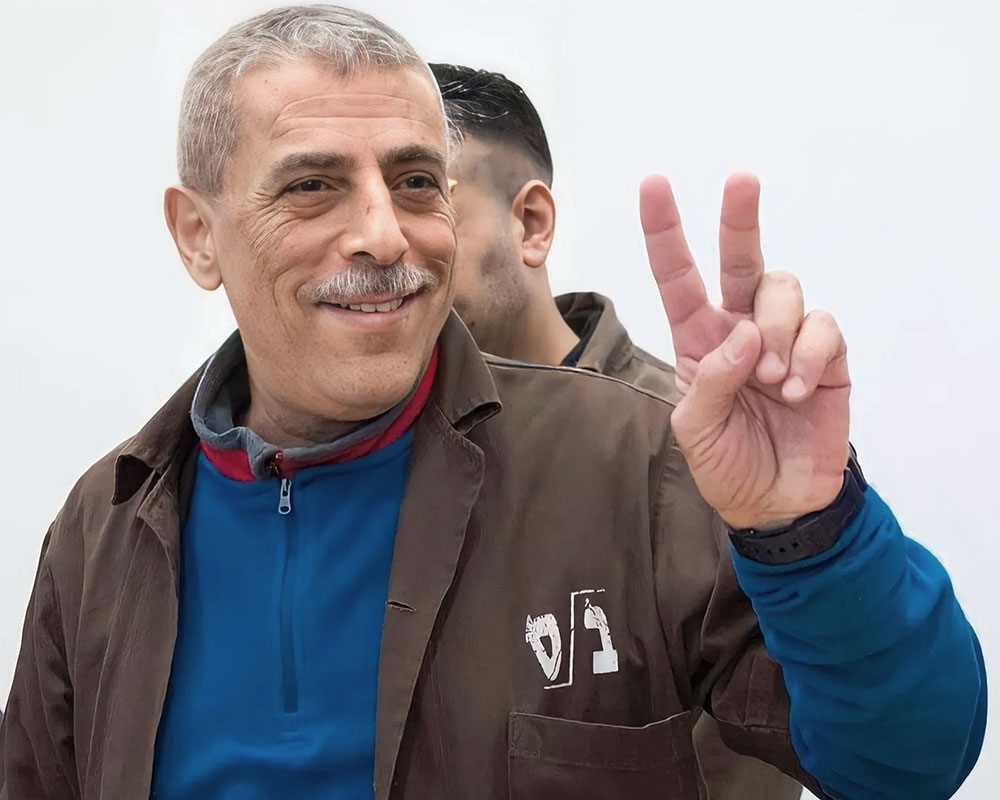 Palestinian prisoner Walid Daqqa
Palestinian prisoner Walid Daqqa
On April 7, the death of one of the most prominent Palestinian prisoners, Walid Daqqa, was announced. He passed away at the age of 62 after a long and painful battle with spinal cord cancer, a rare medical condition.
In addition to neglecting his medical treatment until his health deteriorated to a critical state and letting the cancer progress into a terminally late stage, Israel stubbornly refused to release him, rejecting repeated requests from his family and lawyer for his release on humanitarian and medical grounds.
Israel even went so far as to continue detaining him despite his actual sentence ending on March 24, 2023, after he spent 38 years in Israeli prisons. Since October 7, 2023, the Palestinian novelist was repeatedly subjected to "torture and humiliation" and was denied family visits, as documented by Amnesty International, which had repeatedly called on Israel to release him, the last call which occurred just hours before his death.
Beyond Daqqa, who was renowned as the "intellectual and educator of the prisoner movement" and the "Cave Man," at least 48 prisoners have died in Israeli prisons since October 7, 2023. This comes amid growing local and international reports documenting Israel's appalling violations of prisoners' rights, including incidents of torture, sexual assaults, starvation, and deprivation of basic necessities like clothing and heaters during winter.
3) Egyptian actor Salah El-Saadany
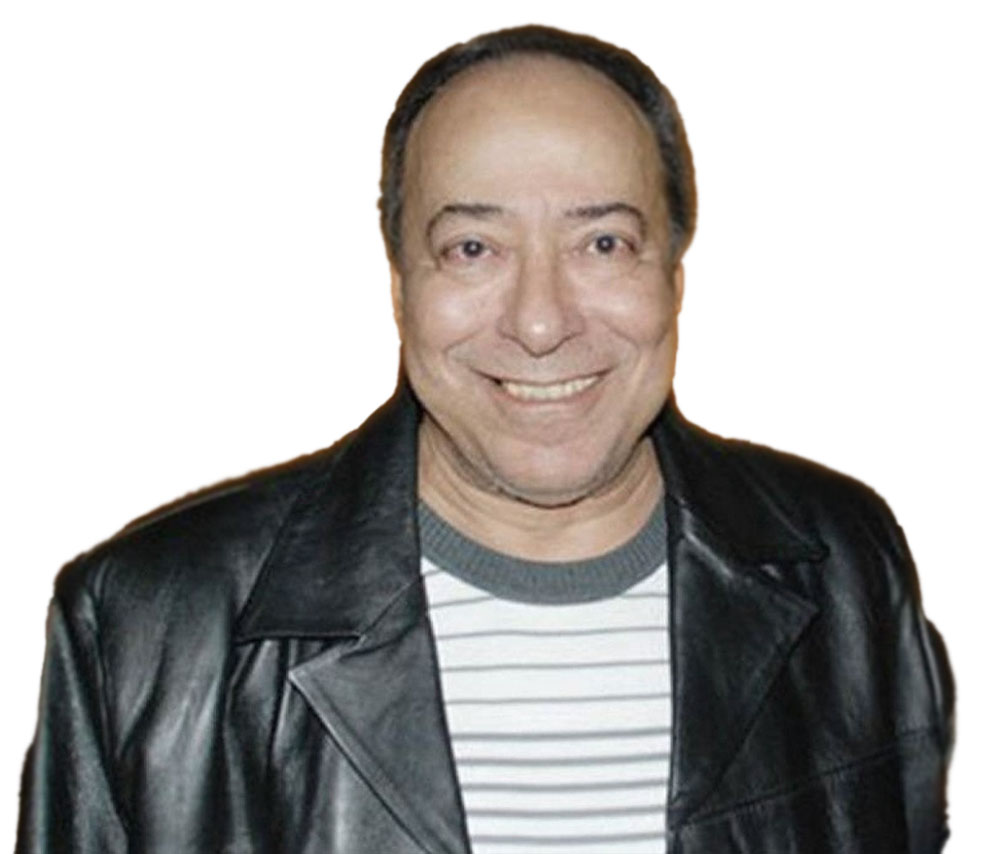 Egyptian actor Salah El-Saadany
Egyptian actor Salah El-Saadany
On April 19, the iconic Egyptian actor Salah El-Saadany, known as the "mayor of Egyptian art," passed away. He had graced audiences with exceptional performances in iconic dramas such as Layaly el-Helmeya (El-Helmeya Nights), Arabesque, Helm el-Ganoubi (The Southern Dream), El-Nas Fi Kafr Asker (People in Kafr Askar), Ragul Fi Zaman El Awlamah (A Man in the Era of Globalization), and Al-Asdiqa’ (The Friends). His cinematic milestones include Al-Ard (The Land), Tair el-Lail el-Hazin (The Sad Night Bird), and Al-Rossassa La Tazal Fi Jaybi (The Bullet Is Still in My Pocket). His final work, El-Kasrat (The Minors), aired in 2013, as illness kept him away from the screen and audience for years, following a career of more than 200 artistic works until his death.
Despite his long absence, “the mayor” never lost his popularity. Millions of fans in Egypt and the Arab world mourned the death of the artist they knew as "the honest farmer," "the man of the people," "the man of principles," and "the cultured artist."
4) Gazan surgeon Adnan al-Bursh
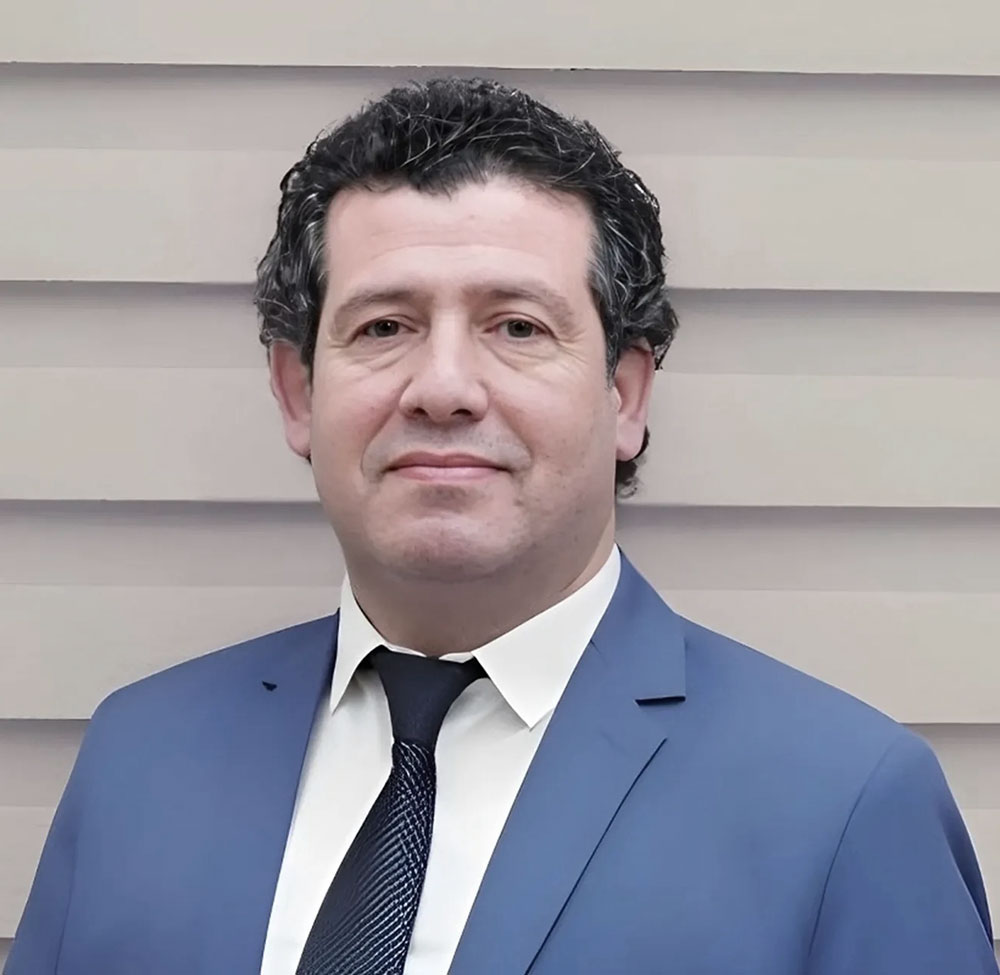 Gazan surgeon Adnan al-Bursh
Gazan surgeon Adnan al-Bursh
In early May, prominent Gazan physician Dr. Adnan al-Bursh, Head of the Orthopedics Department at Al-Shifa Hospital in Gaza, was announced dead in the notorious Ofer Prison. Subsequent reports revealed that he had been subjected to brutal physical assaults that led to his death.
In a joint statement, the Commission of Detainees and Ex-Detainees Affairs and the Palestinian Prisoners’ Society accused Israel of killing him in a "deliberate assassination operation," noting that he had been arrested alongside a group of doctors at Al-Awda Hospital in northern Gaza. Dr. al-Bursh's family has also confirmed that he had no prior health issues before his arrest.
In addition to the good reputation Adnan al-Bursh built as a surgeon across the Arab region, his popularity surged after a video went viral showing the moment he was injured during an operation at the Indonesian Hospital in northern Gaza amid an Israeli airstrike. He was treated in darkness due to the Israeli siege and continued targeting.
Amid the collapse of the healthcare sector caused by the Israeli genocide, Dr. Adnan al-Bursh continued his work at the Indonesian Hospital, even as Israeli forces encircled it. During a ceasefire, he managed to relocate to work at Kamal Adwan Hospital and later at Al-Awda Hospital, where Israeli forces surrounded and arrested him along with a group of other doctors.
What this devoted Gaza-based doctor endured at the hands of his Israeli captors is yet another crime against humanity committed openly by Israel, without accountability, merely for adhering to his professional oath and prioritizing the safety and well-being of his patients over his own life.
5) Egyptian footballer Ahmed Refaat
 Egyptian footballer Ahmed Refaat
Egyptian footballer Ahmed Refaat
On the morning of July 6, Egyptians awoke to the shocking news of the death of national football team player Ahmed Refaat, at just 31 years old, following a severe deterioration in his health.
The health issues began sometime in March 2024, during the final minutes of a match for his team, Modern Future, in Alexandria. Refaat suffered cardiac arrest for nearly two hours. After being transferred to a nearby hospital and receiving specialized medical care, he regained consciousness, but his health condition remained "unstable."
He was discharged from the hospital under strict conditions, requiring continued treatment and close medical monitoring. However, the nation was devastated when news of his death was announced. The shock was amplified by Refaat’s recent appearance in a television interview, where he spoke of the "pressures" that led to his health crisis, hinting at the involvement of a prominent political figure and businessman. He described how this figure played a role in thwarting his dream of playing abroad, forcing his return to Egypt, and causing his mysterious absence from the field for several months.
While Refaat did not name the individual, his brother later revealed the person to be Ahmed Diab, a parliamentary member and president of the Egyptian Professional Football Clubs Association. Diab, who had managerial authority over Modern Future during that period, reportedly failed to resolve Refaat’s mandatory military service, an issue he had allegedly pledged to handle but ultimately went back on his promise, causing Refaat to spend several months in detention for “evading compulsory military service.”
While the official investigation into Refaat's case is still ongoing, Diab has denied responsibility for the player’s crisis. Nonetheless, many Egyptians sympathized with Refaat, believing he had a strong will to expose those who caused his death.
Refaat’s tragic death brought to light several long-overlooked issues of corruption in Egyptian sports. Chief among them are the lack of properly equipped ambulances capable of dealing with serious emergency cases in stadiums, including cardiac defibrillators; the toxic intersection of politics and sports; forced military conscription and the pressures faced by athletes of military service age; and the systemic mishandling of talent in Egypt.
6) Hamas leader Ismail Haniyeh
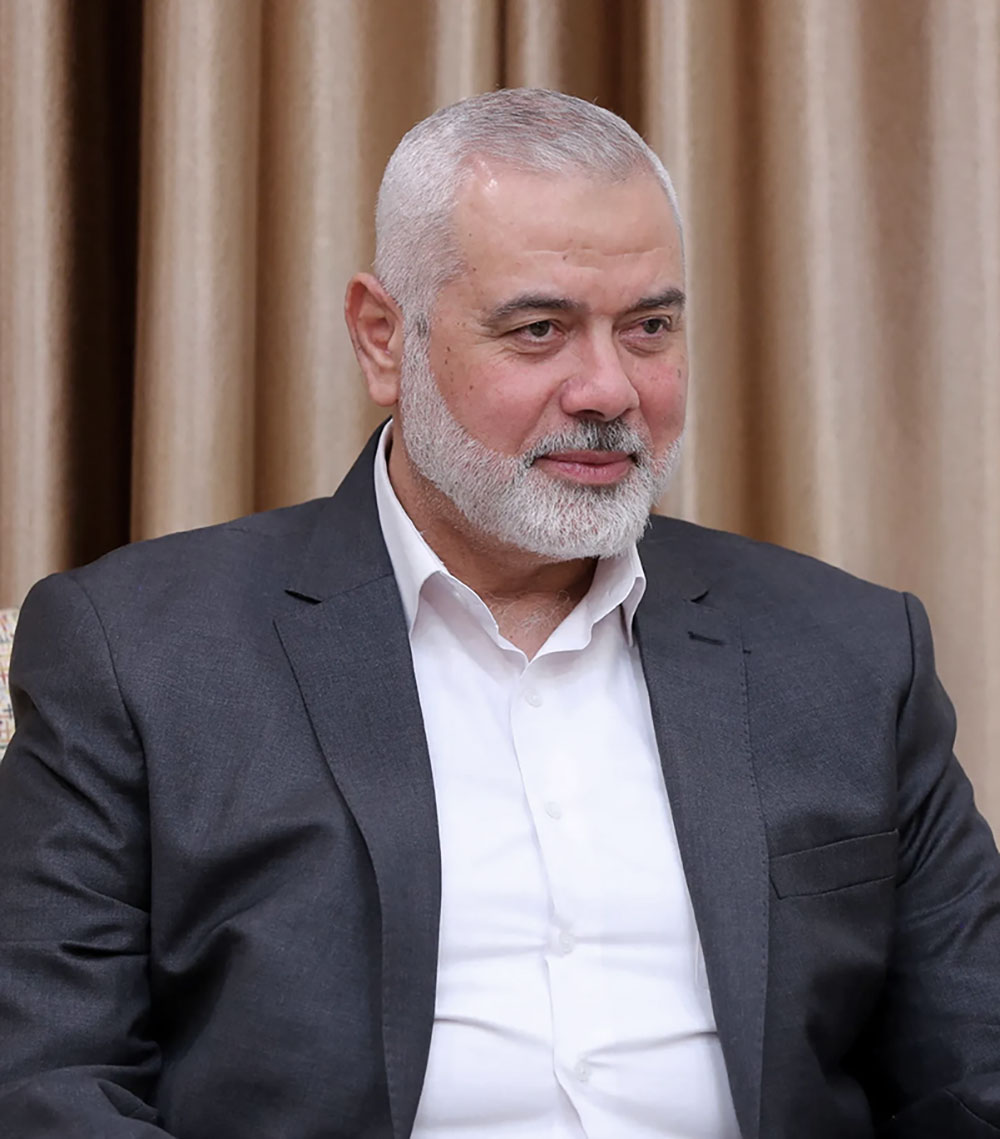 Hamas leader Ismail Haniyeh
Hamas leader Ismail Haniyeh
The head of Hamas's political bureau, Ismail Haniyeh, was assassinated at dawn on July 31 in Tehran, where he was attending the inauguration of Iran's new president, Masoud Pezeshkian.
Initially, Hamas announced his death as a result of a “treacherous Zionist airstrike on his residence in Tehran.” Meanwhile, the Iranian Revolutionary Guard stated that Haniyeh’s residence had been "targeted, leading to his martyrdom and that of one of his guards," pledging to investigate the incident and release the findings later. However, the details surrounding his assassination remained unclear.
His assassination was shocking and reverberated widely, especially as it occurred in the heart of the Iranian capital and during a period of intense negotiations over a ceasefire between Hamas and Israel, bringing the momentum of the talks to a sudden halt. The incident heightened fears of escalating tensions in the region and the potential outbreak of a broader regional war, particularly since Israel had just hours earlier targeted prominent Hezbollah commander Fouad Shukr in Beirut. It led many to suspect that Israeli PM Netanyahu had deliberately carried out the attacks at that time to halt the peace talks so he could continue his plan for the region.
Concerns also grew about Hamas’s future leadership, the process of selecting his successor during an ongoing war, and the movement's ability to maintain its cohesion. In the days following his assassination, Israel targeted and assassinated his predecessor and several other senior leaders of both Hamas and Hezbollah.
7- Hezbollah Secretary-General Hassan Nasrallah
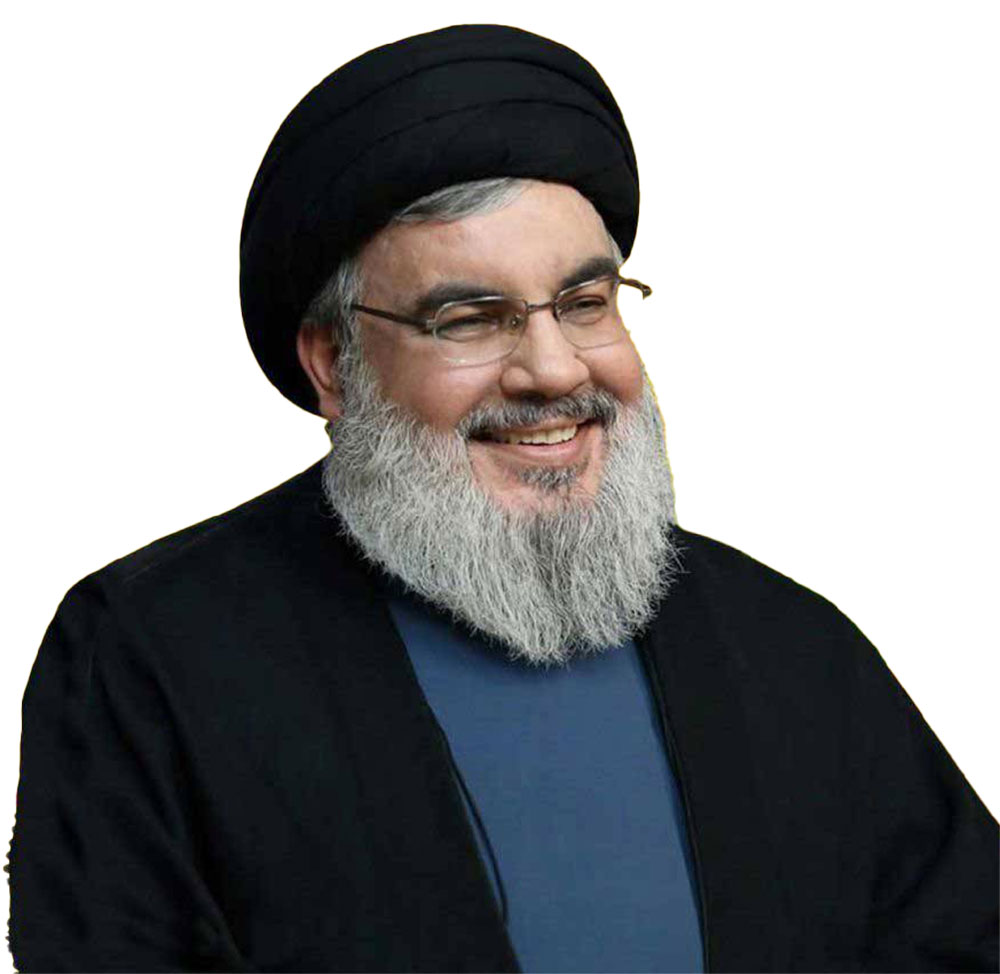 Hezbollah Secretary-General Hassan Nasrallah
Hezbollah Secretary-General Hassan Nasrallah
After 32 years as the group’s leader, Hezbollah Secretary-General Hassan Nasrallah was assassinated in a major Israeli airstrike on Beirut’s southern suburbs on September 27, at the age of 64.
Nasrallah was a polarizing figure. To his supporters, he was a hero and symbol of resistance who defended Lebanon, liberated its South, and turned his party into an unparalleled regional force. To his critics, he was the leader of an armed militant group whose policies contributed to Lebanon’s economic and political woes. Both sides, however, acknowledged the man’s unmatched charisma and role in shaping Hezbollah into a key political player in the region.
Nasrallah’s assassination was shocking and terrifying to Lebanese people on a multitude of levels, regardless of their views on him or Hezbollah. There was widespread fear that Israel might exploit the vacuum left by the elimination of the party’s top military and political leadership to reoccupy parts of South Lebanon—a fear that began to materialize during, and after, a ceasefire agreement was reached. Hundreds of Israeli violations continue to take place in Lebanon even after its implementation.
8) Lebanese humanitarian activist Julia Ramadan
 Lebanese humanitarian activist Julia Ramadan
Lebanese humanitarian activist Julia Ramadan
On Sunday, September 29, Israel killed Julia Ramadan, a 28-year-old Lebanese humanitarian activist, along with her mother, in an airstrike on their home in the town of Ain al-Dilb, east of Saida, southern Lebanon.
The airstrike destroyed an entire building housing displaced families, claiming the lives of over 45 people and leaving more than 70 others injured, including Julia’s father and her brother Ashraf.
In her final days, Julia dedicated herself to fundraising and assisting displaced families who had fled to Saida from villages under bombardment by Israeli airstrikes. Her brother, Ashraf, was her partner in this humanitarian mission. The siblings had recently opened a restaurant, which they repurposed at the start of Israel's escalation against Lebanon to provide free meals to displaced families. Julia was killed in the airstrike on her family’s home while she was preparing a new batch of donations.
Julia’s death is yet another testament to Israel's brutality and barbaric violence, exposing its claim of only targeting Hezbollah and its infrastructure as a blatant lie.
While the deaths of Palestinian detainee Walid Daqqa and physician Adnan al-Bursh in Israeli prisons underscored Israel's unchecked violations of human rights, its killing of Lebanese humanitarian activist Julia Ramadan in her home while she was preparing donations revealed the falsehood of Israel’s claims that it only targets Hezbollah and its infrastructure.
9) Hamas leader Yahya Sinwar
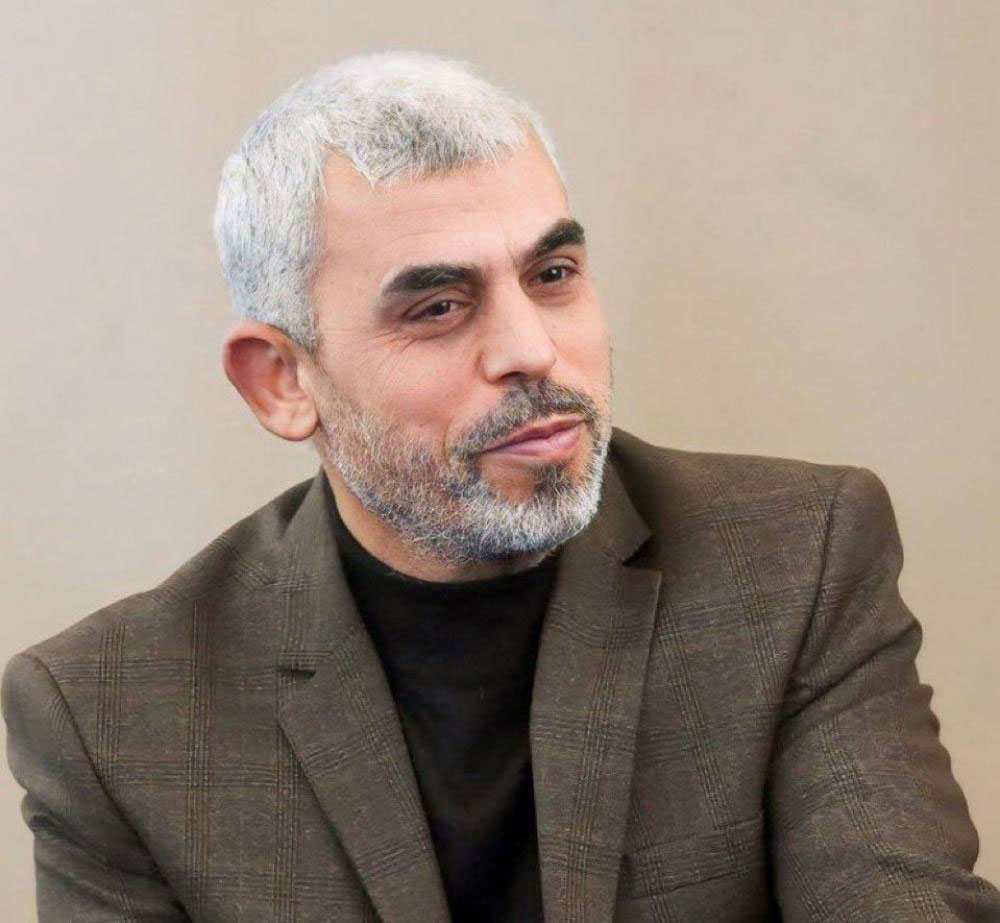 Hamas leader Yahya Sinwar
Hamas leader Yahya Sinwar
On October 17, the Israeli army announced the killing of Hamas leader Yahya Sinwar in an "unplanned" operation in southern Gaza. The following day, Hamas officially mourned its leader, confirming his death during a military confrontation in Gaza.
Sinwar, who had spent approximately 23 years in Israeli prisons before being released in 2011 as part of the "Gilad Shalit prisoner exchange deal," became Hamas's political bureau chief, succeeding Ismail Haniyeh, on August 6, 2024.
The manner of Sinwar’s death—captured in a video showing him fighting an Israeli drone with a wooden stick, an injured arm, and donning a mask on his face—garnered widespread sympathy and solidarity, even from those critical of him and his leadership. The scene left many praising him as a man of conviction who fought for a cause he believed in until his final breath.
10) Syrian activist Mazen al-Hamada
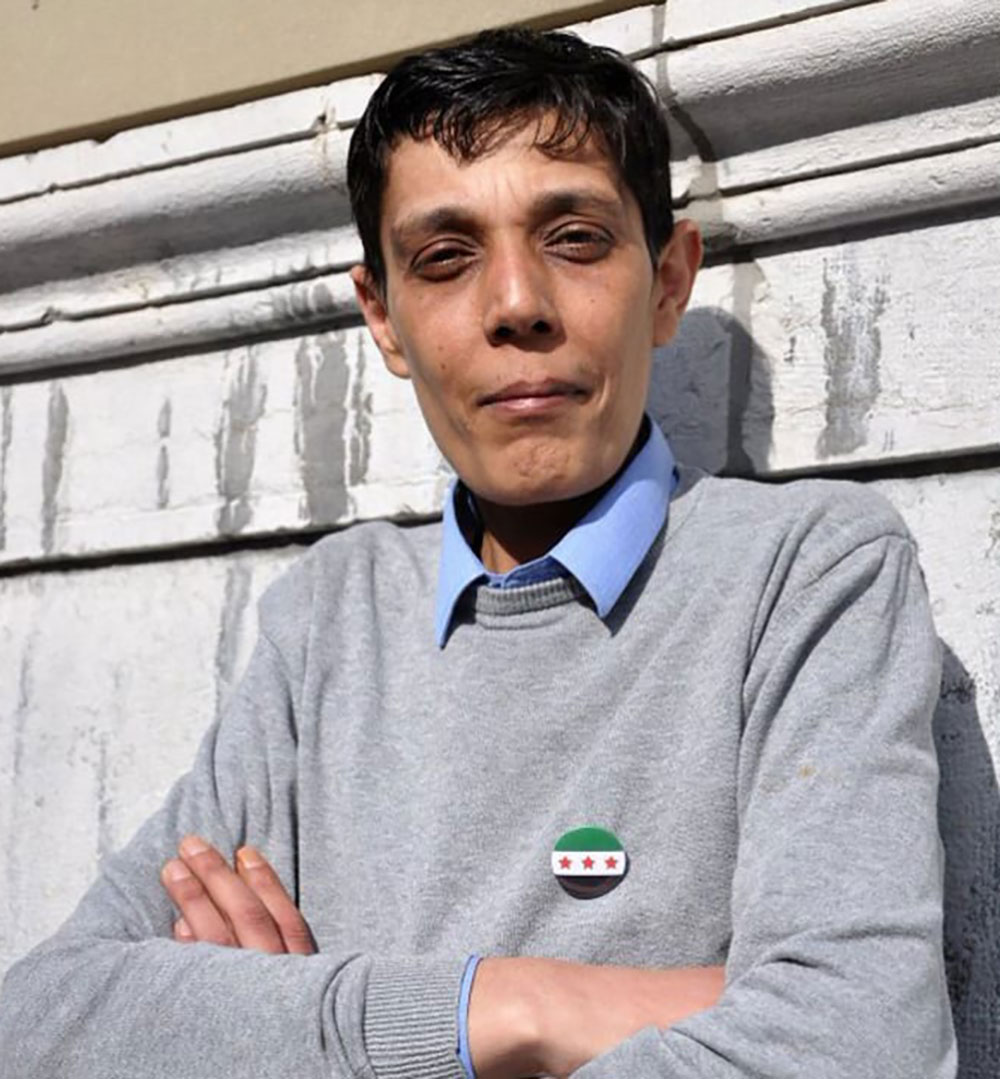 Syrian activist Mazen al-Hamada
Syrian activist Mazen al-Hamada
Amid the widespread celebration of the fall of Bashar al-Assad's regime in Syria, the discovery of the body of activist Mazen al-Hamada soon after was both painful and shocking to many. His remains were found among dozens of corpses of former detainees at the infamous Sednaya Prison, known as the "human slaughterhouse," in a hospital in the Damascus countryside. His body bore signs of torture, and many mourned the fact that he died mere weeks before seeing his dream of a free Syria realized.
Al-Hamada, nicknamed "the talking deadman," hailed from Deir ez-Zor in eastern Syria. He endured three years of horrific torture in Assad's prisons before his release in 2014. After gaining asylum in the Netherlands, he became a prominent voice in international media, exposing the atrocities he had endured.
Unexpectedly and for yet-unknown reasons, al-Hamada decided to return to Syria in 2020. From the moment he arrived in Damascus, he completely disappeared, and his whereabouts were unknown for years until his body was discovered.
Hamada’s body was transferred from Al-Mujtahid Hospital and laid to rest in a grand public funeral. The procession was filled with chants demanding justice for him and all detainees in the former regime's prisons, with slogans like "no humiliation, no disgrace; we will hold the jailers accountable" and "we will avenge Mazen."
Raseef22 is a not for profit entity. Our focus is on quality journalism. Every contribution to the NasRaseef membership goes directly towards journalism production. We stand independent, not accepting corporate sponsorships, sponsored content or political funding.
Support our mission to keep Raseef22 available to all readers by clicking here!
Interested in writing with us? Check our pitch process here!
